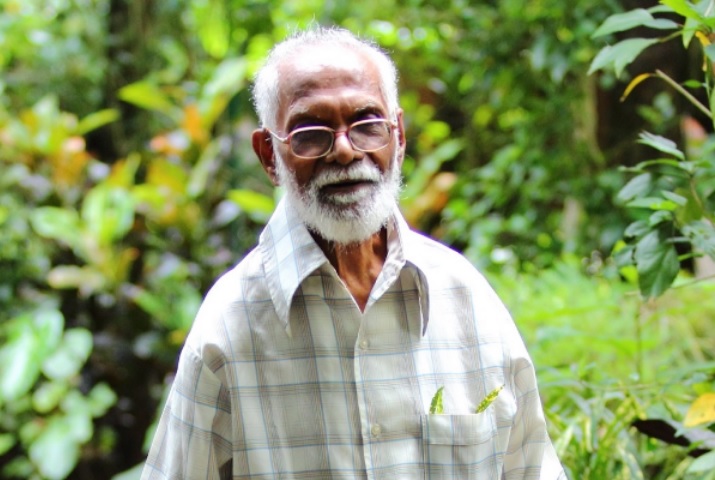Jesuit Fr Rayan dies; pioneered theology with an Asian perspective
Jesuit Father Samuel Rayan — a pioneer of theology with an Asian perspective who had a 'radical interpretation of the Bible' — has passed away.
Jan 03, 2019

KOCHI, KERALA: Jesuit Father Samuel Rayan — a pioneer of theology with an Asian perspective who had a 'radical interpretation of the Bible' — has passed away. The Kerala native priest was 98.
Father Rayan died Jan. 2 in a hospital in the southern Indian state of Kerala.
Before his passing, he had been living in retirement and had been suffering dementia. Kerala Jesuit provincial Father George Mutholil told ucanews.com that Father Rayan had been under medical care for age-related illness for the past several years.
"Father Rayan was a pioneer who theologized from an Asian or third world perspective," said Father Mutholil.
Father Rayan was made a professor at the Jesuit theology seminary at Vidyajyoti College, Delhi in 1972. He also served as its principal from 1972 to 1976. After more than three decades of teaching there, he returned to Kerala in 2010.
"Until Father Rayan's rise as a theologian, the concerns of the people of India were not found in the theology that originated from Western Europe," said P. T. Mathew, a fellow theologian who worked with Father Rayan.
Bishop Paul Mullassery of Quilon said the India Church will always "remember him for his radical interpretation of the Bible and as a man concerned for the poor and marginalized."
Bishop Mullassery said Father Rayan's theologising could be broadly labeled as part of liberation theology, which has been called controversial for its links to Marxism.
"But his was not the militant version of liberation theology. His theology came from his deep meditations of the Gospel," Bishop Mullassery said.
Father Rayan defended the poor, spoke for the environment and his theologising was deeply rooted in Gospel values, the bishop said.
In an interview with ucanews.com in 1999 Father Rayan said theologising in India is "to bring our Christian faith and Indian reality face to face with each other.… It makes Christian faith and people's life situations meet, interact and interpret each other.
"Rice is for sharing, bread must be broken and given. Every bowl, every belly shall have its fill, to leave a single bowl unfilled is to rob history of its meaning; to grab many a bowl for myself is to empty history of God," he said.
K. Michael Tharakan, chairman of Kerala Council for Historical Research former vice Chancellor Kannur University, remembered the late priest for his simplicity.
Tharakan said that a visiting Prince Charles asked Father Rayan how the Indian people managed to peacefully coexist peacefully given many of them adhered to different faiths. Tharakan said that Father Rayan told the prince that: "God cannot be understood with one religion and God is a phenomenon understood by different religious experience."
Father Rayan was born on July 23, 1920 in a village in Kollam district. He was the fourth child in the middle of two girls and six boys.
After secondary education near his village, he joined the Jesuit novitiate in 1939 and had his philosophy studies in neighboring Tamil Nadu.
He returned to Kerala and taught at a school and also completed his graduation in the local Malayalam language and literature.
He was ordained a priest in 1955 after theology studies at De Nobili College in Pune western India and left for Rome in 1960 for doctoral studies.
Father Rayan made his final profession of vows as a Jesuit on Aug. 15, 1958, received by Father Jean-Baptiste Janssens, the then general of the Jesuits.
He was a founding member of the Ecumenical Association of Third World Theologians.--ucanews.com







Total Comments:0